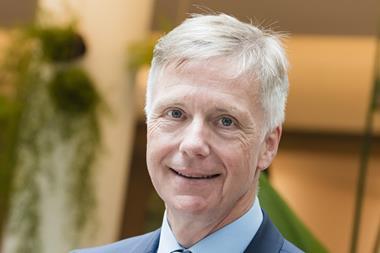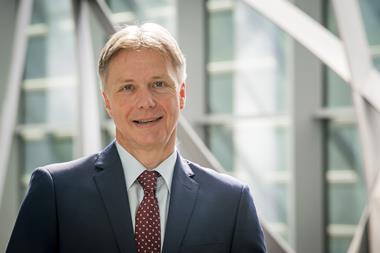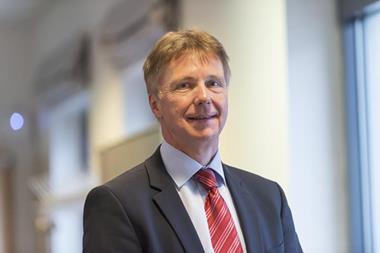He urges innovative efforts to tackle protection gaps concerning climate transition, cyber and other potentially systemic risks
Optimal risk-sharing is fundamental to a successful transition to carbon neutrality, protecting against extreme risks in the face of climate change, and in the battle against cyber-crime, the President of the Federation of European Risk Managers (Ferma), Dirk Wegener, stated this morning.
Wegener was opening the FERMA Forum, which is taking place in Copenhagen over the next two days.
Three major concerns
In his remarks, Wegener brought together three areas of concern for risk managers: the transition to carbon neutrality, systemic risks and cyber risks and how a protection gap was threatening optimal risk sharing.
For many risk managers, he said, the pandemic allowed them to demonstrate their capabilities and the value of risk management for organisations in a crisis.
They showed that enterprise risk management enabled businesses to remain resilient.
“In a time of such great uncertainty, it was satisfying for risk managers to put their skills to use to support their companies and their colleagues. It is not so surprising 90% said the pandemic had made risk management more important to their organisation.”
However, he also stated that the pandemic had been an uncomfortable time for insurance managers who had had the duty of explaining to their boards why certain risks such as non-damage business interruption were not covered.
Since then, the market has reacted by tightening wordings, for example, to specifically exclude claims resulting from infectious diseases. Overall, the hard market continues to limit risk transfer capacity and keep up prices.
Wegener said: “We see growing concern from insurance managers about a protection gap. In the FERMA 2022 Risk Manager Survey, 41% of the respondents said they believe that some of their company’s activities or locations will become uninsurable in the future.
”This finding illustrates our concern about exposures from all risks that can be seen systemic, such natural disasters resulting from climate change.”
Keeping risk pools on the agenda
Ferma believes that mitigating systemic and catastrophe risks requires the combined efforts of insureds, insurers and governments. It continues to advocate for the of a European public-private partnership to build the risk transfer capacity that companies need.
Wegener urged insurers to join FERMA in this effort, saying that it was an opportunity to use their expertise and extend their social role.
When it comes to the transition to carbon neutrality, a paper published by FERMA in September, Insuring the Transition, expressed the frustration of risk managers at a lack of support from the insurance industry.
“Corporate customers want insurers to gain a holistic understanding of their risks and needs, which would give more flexibility to underwriters and engineers to do business beyond rigid guidelines. We will work with you. Risk managers are increasing their data and technical skills to provide risk leadership. FERMA will work with you.”
Wegener concluded: “Today, we are in the early stages of what may be the economic greatest transition for our societies since the industrial revolution. It requires many changes from our businesses. Yes, that is going to be demanding, but it’s also exciting, and we have a great contribution to make. Closing the protection gap is an important part of that. “
He said that the Forum theme, Transitioning Together, was an acknowledgement that sharing knowledge and resources is the way that to make our societies and organisations sustainable in this new period of change. The second theme of the event is risk leadership in a fast-changing world.
“Enterprise risk management is the bedrock, the foundation of this work, and risk leadership is our compass to achieving what we want for our greener and digital planet.”
Blog: FERMA 2022 Daily News Summary sponsored by AXA XL
- 1
- 2
- 3
- 4
- 5
- 6
- 7
- 8
- 9
- 10
- 11
 Currently reading
Currently readingDirk Wegener opens FERMA Forum in Copenhagen
- 12
- 13
- 14
- 15
- 16
- 17





![20221011_152332[1]](https://d9x705hv73pny.cloudfront.net/Pictures/100x67/1/4/7/93147_20221011_1523321_743215.jpg)





![20221010_112901[1]](https://d9x705hv73pny.cloudfront.net/Pictures/100x67/1/0/0/93100_20221010_1129011_262883.jpg)
![20221010_100820[1]](https://d9x705hv73pny.cloudfront.net/Pictures/100x67/0/9/6/93096_20221010_1008201_549459.jpg)










![20221010_112901[1]](https://d9x705hv73pny.cloudfront.net/Pictures/380x253/1/0/0/93100_20221010_1129011_262883.jpg)












No comments yet